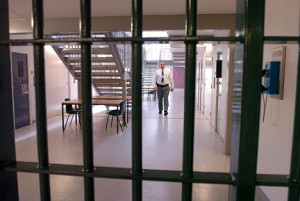 The 2019 Maryland legislative session has come to an end, and unlike previous years where marijuana was decriminalized or mandatory prison sentences for certain drug offenses were effectively discarded, there will be no drastic changes to the criminal code come October. While not headline makers, lawmakers did successfully address some minor offenses such as gambling and possession of alcohol, and changes are on the horizon. We previously wrote about a bill that proposed to decriminalize small time gambling, which in our opinion was long overdue. With state casinos booming, and sports betting on the verge of becoming legal in Maryland it really makes zero sense to impose criminal sanctions on citizens engaged in unlawful gambling. Both houses agreed and passed the bill that will now punish illegal gamblers with a civil citation and a fine, rather than a potential misdemeanor conviction and jail time. Anyone caught running an unauthorized casino or taking bets as a bookie still faces criminal liability, though lawmakers did away with the archaic 6-month mandatory minimum penalty. The maximum fine for civil gambling offenses will be $500 if less than $100 is at stake or $1,000 if more than $100 is at stake. Illegal gambling cases were not common to begin with, but now police will be even more motivated to look the other way.
The 2019 Maryland legislative session has come to an end, and unlike previous years where marijuana was decriminalized or mandatory prison sentences for certain drug offenses were effectively discarded, there will be no drastic changes to the criminal code come October. While not headline makers, lawmakers did successfully address some minor offenses such as gambling and possession of alcohol, and changes are on the horizon. We previously wrote about a bill that proposed to decriminalize small time gambling, which in our opinion was long overdue. With state casinos booming, and sports betting on the verge of becoming legal in Maryland it really makes zero sense to impose criminal sanctions on citizens engaged in unlawful gambling. Both houses agreed and passed the bill that will now punish illegal gamblers with a civil citation and a fine, rather than a potential misdemeanor conviction and jail time. Anyone caught running an unauthorized casino or taking bets as a bookie still faces criminal liability, though lawmakers did away with the archaic 6-month mandatory minimum penalty. The maximum fine for civil gambling offenses will be $500 if less than $100 is at stake or $1,000 if more than $100 is at stake. Illegal gambling cases were not common to begin with, but now police will be even more motivated to look the other way.
Lawmakers also passed legislation that will make consumption of alcohol in public and possession of an open container a civil infraction rather than a criminal misdemeanor. The $100 fine will remain the same, but offenders no longer run the risk of a criminal conviction for drinking a beer, wine or liquor in public. This bill does not directly impact citations for minors in possession of alcohol, which will remain a civil infraction with a potential $500 fine for a first offense. Each of these civil infractions may be prosecuted by the local State’s Attorney’s Office, which is generally a good thing. The SAO has the ability to offer some sort of pre-trial diversion such as community service or alcohol education in exchange for a dismissal, while a district court judge has no such ability. The passage of this bill may affect the way open container violations are handled in local jurisdictions such as Ocean City. Previously public consumption or possession of an open container of alcohol was punishable by jail time in Ocean City, and police officers of this popular summer destination had the authority to arrest those, who for example were leaving Secrets with a drink in their hand. The Blog will pay attention to the local code to see if the city counsel is forced to make any changes to the existing laws regarding alcohol.
There was a lot of talk before the 2019 session began that the threshold of criminal possession of marijuana would be raised from 10 grams to one ounce (28 grams) but this change may not be on the immediate horizon. In addition to raising the lawful possession threshold, a Montgomery County lawmaker also proposed to allow adults over the age of 21 the right to use marijuana, to possess up to 5 grams of marijuana concentrates, and to cultivate up to 6 marijuana plants in their homes. The proposal was in the form of a constitutional amendment that would be put to a vote in this year’s general election.
 Criminal Defense Lawyer Blog
Criminal Defense Lawyer Blog










